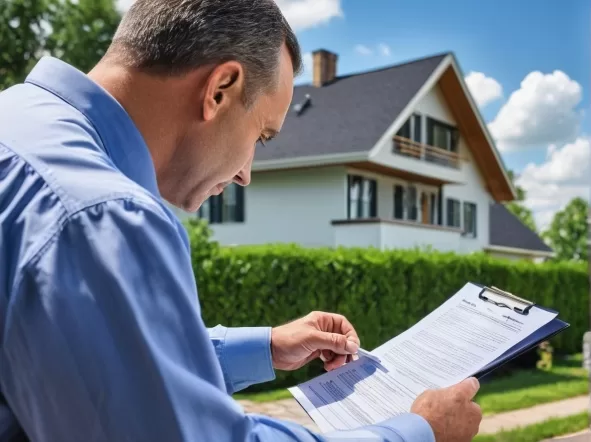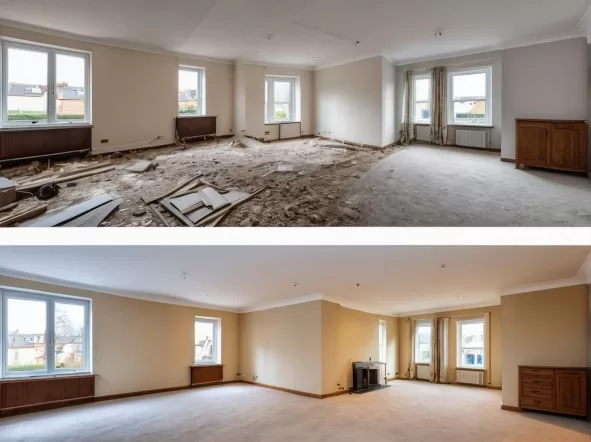The Ultimate Guide to Accurate Property Assessment

Understanding your property value is crucial whether you’re planning to sell, refinance, or simply monitor your investment’s worth. A home’s value isn’t just a number, it’s a reflection of market trends, location desirability, and the emotional connection buyers feel when they step inside. In this guide, we’ll unravel the key factors that influence your property value, provide actionable tips for assessment, and empower you to make informed decisions about your real estate journey.
Introduction: Why Property Value Matters
Your home’s property value is much more than a figure, it’s a cornerstone of financial planning. It dictates the equity you hold, the price you can command in the market, and even your local property taxes. Despite its importance, many homeowners struggle to pinpoint their property’s true worth, often relying on outdated methods or incomplete information.
In 2023, the average U.S. home price hovered around $416,100, according to the National Association of Realtors. However, values can vary dramatically based on location, condition, and economic shifts. This guide will equip you with the knowledge and tools to accurately assess your property value and understand the factors influencing it.
1. The Basics of Property Value
To begin, it’s essential to define what property value entails. At its core, it represents the monetary worth of your home based on market conditions. This valuation is influenced by several key factors:
- Location: Proximity to schools, shopping centers, and amenities can boost your home’s appeal.
- Size and Layout: Larger homes with efficient floor plans often command higher prices.
- Condition: Upgrades, maintenance, and curb appeal directly affect value.
- Market Trends: Real estate markets fluctuate due to economic conditions, buyer demand, and interest rates.
2. Tools and Methods for Assessing Property Value
a. Online Valuation Tools
Websites like Zillow and Redfin provide instant estimates using algorithms that analyze comparable sales, location, and property specifics. While convenient, these tools may not account for unique features or upgrades.
b. Comparative Market Analysis (CMA)
A CMA is performed by real estate agents and involves comparing your home to similar properties (comps) sold recently in your area. This method provides a localized and nuanced view of your property value.
c. Professional Appraisals
Certified appraisers conduct in-depth evaluations, considering everything from structural integrity to neighborhood trends. This is often required by lenders during refinancing or mortgage applications.
d. DIY Assessments
For a hands-on approach, homeowners can analyze recent sales in their neighborhood, adjust for differences in size and upgrades, and factor in market trends. While less precise, this can provide a ballpark figure.
3. Factors That Significantly Impact Property Value
a. The Power of Curb Appeal
First impressions matter. According to a study, homes with well-maintained landscaping can see an increase in value of up to 10%. Simple changes like fresh paint, new siding, or a tidy lawn can make a big difference.
b. Interior Design and Layout
Modern buyers often prioritize open floor plans, energy-efficient appliances, and updated kitchens and bathrooms. Removing walls to create a more open flow can increase perceived space and appeal.
c. Smart Home Features
Properties with smart thermostats, security systems, and energy-efficient lighting attract tech-savvy buyers willing to pay a premium. In fact, 81% of buyers say smart home technology influences their decision-making.

d. School Districts and Neighborhoods
Homes located in top-rated school districts often fetch 10-20% higher prices, as families prioritize education quality. Similarly, proximity to parks, restaurants, and public transit boosts desirability.
e. Economic Trends
Interest rates and employment rates directly affect buyer behavior. For instance, a 1% decrease in interest rates can increase a buyer’s purchasing power by 10%, impacting your home’s value.
4. Improving Your Property Value: Actionable Tips
a. Renovations That Pay Off
Not all upgrades yield the same return. Focus on:
- Kitchens: A minor kitchen remodel can offer at least 72% return on investment (Remodeling Magazine).
- Bathrooms: Adding a half-bath can boost property value by 10%.
- Energy Efficiency: Installing solar panels or better insulation appeals to eco-conscious buyers.

b. Declutter and Stage
Staging can increase your home’s value by up to 5%. Decluttering and rearranging furniture to showcase space makes a home more inviting.
c. Regular Maintenance
Stay ahead of repairs to prevent small issues from becoming costly problems. For instance, fixing a leaky roof or upgrading an aging HVAC system can save money and protect your home’s value.
5. Market Trends and How to Stay Ahead
a. Rising Trends in 2024
The market has seen a surge in demand for homes with sustainable features, home offices, and multi-functional spaces. Understanding buyer preferences can help you position your home effectively.
b. Local Expertise Matters
Real estate is hyper-local, meaning your neighborhood’s unique characteristics heavily influence your property value. Collaborating with local agents or appraisers ensures accurate insights.
c. Timing Your Sale
Spring is traditionally the best time to sell, with homes listed between March and May often selling faster and at higher prices. Monitoring market trends can help you identify the ideal selling window.
Conclusion
Assessing your property value is a multifaceted process that requires a blend of tools, expertise, and market awareness. By understanding the factors at play and taking actionable steps to enhance your home’s worth, you position yourself for success, whether selling, refinancing, or simply planning for the future. Accurately valuing it ensures you make decisions that honor its worth.
